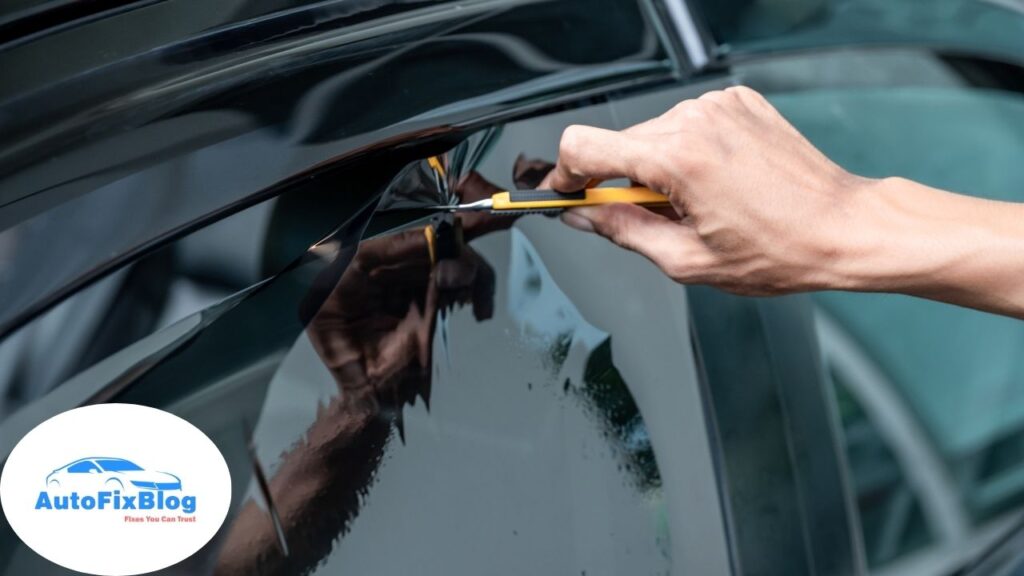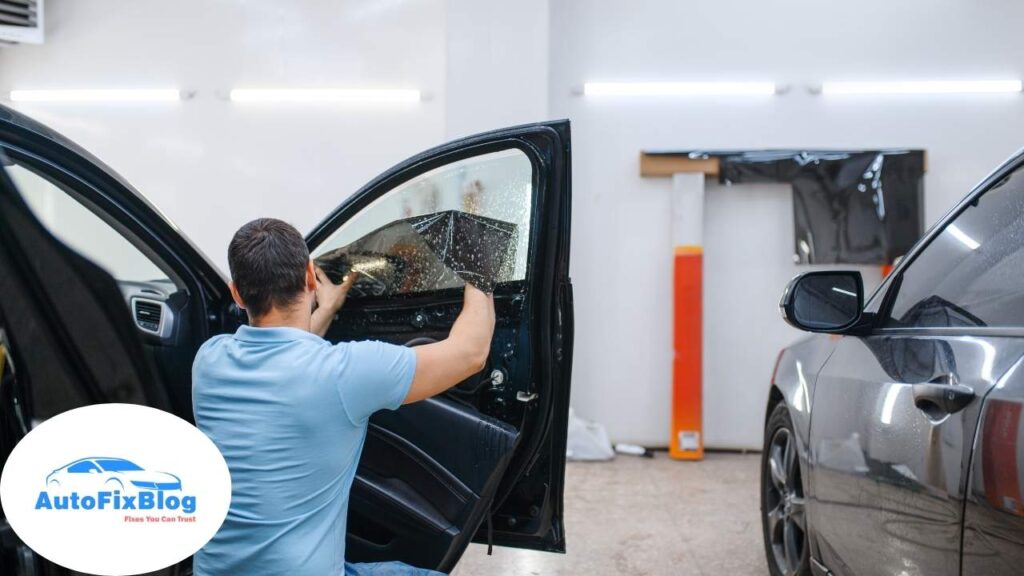Tinted car windows are not just about aesthetics; they also provide privacy, reduce heat, and block harmful UV rays. If you’re considering getting your car windows tinted, one of the first questions you might have is: how much does it cost to tint car windows? The answer depends on several factors, including the type of tint, the size of your vehicle, and the professional service you choose.
This article explores everything you need to know about car window tinting, from the benefits and cost factors to types of tints and maintenance tips.
The Benefits of Tinted Car Windows
Before addressing how much does it cost to tint car windows, it’s essential to understand why tinting your windows can be worth the investment:
- Heat Reduction: Tinted windows reduce the amount of heat entering your car, making it more comfortable during hot days.
- UV Protection: High-quality window tints block up to 99% of harmful UV rays, protecting your skin and reducing interior fading.
- Privacy: Tints make it harder for outsiders to see into your vehicle, offering a sense of security.
- Reduced Glare: Tinting minimizes glare from the sun and headlights, enhancing visibility and driving safety.
- Aesthetic Appeal: Tinted windows give your car a sleek, modern look.

Factors That Affect the Cost of Window Tinting
When asking how much does it cost to tint car windows, keep in mind that prices can vary widely based on several factors:
1. Type of Window Tint Film
There are different types of window tints, each with varying costs:
- Dyed Film: The most affordable option, providing basic UV protection and a dark look.
- Metalized Film: Offers heat reduction and durability but can interfere with GPS and radio signals.
- Carbon Film: Non-metallic and provides better UV protection and heat insulation.
- Ceramic Film: The most expensive option, offering superior heat rejection, UV protection, and clarity without interference.
- Hybrid Film: Combines dyed and metalized layers for balanced performance and cost.
2. Number of Windows Tinted
The cost increases with the number of windows you want to tint. For example, tinting all windows on a sedan will cost more than just the front two windows.
3. Type of Vehicle
Larger vehicles, such as SUVs or trucks, require more film and labor, making them more expensive to tint than compact cars.
4. Professional vs. DIY
Hiring a professional ensures high-quality installation but costs more than a DIY tint kit.
5. Location and Regulations
Local laws regulating tint darkness (measured as Visible Light Transmission, or VLT) can affect pricing, as installers must comply with legal standards in your area.
Average Cost of Tinting Car Windows
So, how much does it cost to tint car windows on average? Below is a breakdown based on different scenarios:
Professional Installation Costs
- Compact Car (Two Front Windows): $50–$150
- Sedans (All Windows): $200–$500
- SUVs and Trucks (All Windows): $250–$600
- High-End Ceramic Tint: $400–$800+ for full coverage
DIY Tint Kits
DIY kits are significantly cheaper but require time and precision:
- Cost: $20–$100, depending on the quality of the film and the size of your vehicle.
While DIY options can save money, improper installation can lead to bubbles, peeling, and reduced longevity, often necessitating professional fixes later.
Is Window Tinting Worth the Cost?
When considering how much does it cost to tint car windows, you might wonder if the expense is justified. Here’s why it’s worth it:
- Long-Term Savings: High-quality tints reduce heat and UV exposure, leading to lower air conditioning use and interior wear.
- Enhanced Comfort: Driving with reduced glare and heat makes for a more enjoyable experience.
- Resale Value: Tinted windows can enhance your car’s resale appeal, especially if the tinting is professionally done.
Choosing the Right Professional Installer
If you decide to hire a professional, choose a reputable installer. Here’s how to find the right one:
- Read Reviews: Check online reviews and ask for recommendations from friends or family.
- Ask About Warranty: Reputable shops often offer warranties on their work.
- Request a Portfolio: Look at examples of previous installations to assess quality.
- Verify Compliance: Ensure the installer adheres to local tinting laws and regulations.
DIY vs. Professional Tinting
Whether to DIY or hire a professional depends on your budget, time, and skill level.
DIY Pros
- Lower cost
- Flexibility to work on your schedule
DIY Cons
- Risk of errors, such as air bubbles or uneven application
- Lower-quality film options
Professional Pros
- Flawless installation with high-quality materials
- Knowledge of local laws and proper VLT levels
Professional Cons
- Higher upfront cost
For those new to tinting, a professional installation is usually the safer and more durable choice.
Maintaining Your Tinted Windows
To maximize your investment, proper maintenance is crucial:
- Wait Before Cleaning: Avoid cleaning windows for a week after installation to let the tint cure.
- Use Gentle Cleaners: Opt for ammonia-free cleaners and soft cloths to prevent scratching.
- Avoid Sharp Objects: Be cautious with items like seatbelt buckles that could damage the tint.
- Inspect for Damage: Regularly check for peeling or bubbling and address issues promptly.
Legal Considerations for Window Tinting
Before proceeding, familiarize yourself with your state or country’s tinting laws. These regulations typically specify:
- Maximum Tint Darkness (VLT): The percentage of light allowed through the tint.
- Tint Reflectivity: Some laws restrict reflective or mirrored tints.
- Exemptions: Medical exemptions may permit darker tints for certain individuals.
Non-compliance can lead to fines or required removal, so always consult a professional who understands local laws.
If you’re wondering how much does it cost to tint car windows, the answer varies widely depending on factors like the type of tint, vehicle size, and professional service. On average, expect to pay between $200 and $600 for professional tinting or around $50 for DIY kits.
While tinting involves an upfront cost, the benefits—ranging from improved comfort and UV protection to enhanced aesthetics—make it a worthwhile investment for most car owners. Whether you choose a budget-friendly dyed film or a premium ceramic option, tinted windows offer a combination of style and functionality that enhances your driving experience.



